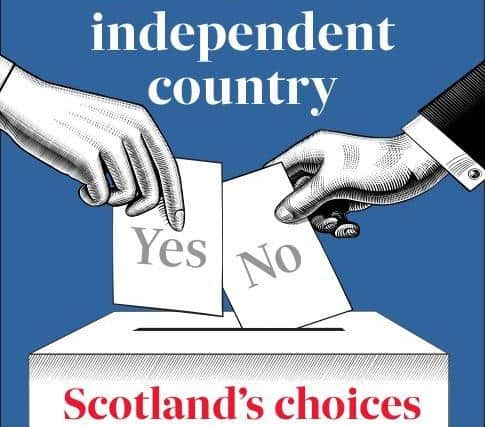Scottish independence: If Scotland votes No again, beware the 'politics of bitterness', warns academic
It comes amid comments stating the comparisons between the post-referendum development of politics in Quebec is not broadly comparable to a potential similar situation in Scotland.
Daniel Weinstock, the Katharine A. Pearson Chair in civil society and public policy at Montreal’s McGill University, made the comments while speaking to The Scotsman’s new limited podcast series, How to be an independent country: Scotland's Choices.
Advertisement
Hide AdAdvertisement
Hide AdThe podcast is looking at how other countries have experienced independence and what lessons there might be for Scotland, with the sixth and final episode focusing on what might happen if Scotland votes No for a second time.
It has previously examined the question of the England/Scotland border, the question of currency and the country’s approach to foreign policy.
Professor Weinstock said while there were comparisons between Quebec and Scotland, there were deep demographic differences which makes the two places difficult to compare.
He said: “It seems to be that Scotland doesn’t have to the same degree as Quebec has, this either religiously or linguistically based ethno-cultural thing that it could fall back into.


"There isn’t the equivalent of French as an identity marker.
"Catholicism is a much more powerful, even for people who don’t go to church, it has marked people’s identities more than perhaps other religions have.
"In a way, Scotland is saved [from that].”
He said Quebec saw its politics turn away from a “more affirmative, open, inclusive vision” of an independent Quebec towards an “inward-looking nationalism” following the defeat for the independence movement in the second referendum.
This was partly due to one senior politician blaming money and “ethnic votes” for the defeat in an infamous speech following the defeat for the Parti Quebecois.
Advertisement
Hide AdAdvertisement
Hide AdProf Weinstock said: “If there were a failed second referendum … beware of the politics of bitterness, beware of the politics of people who start looking for scapegoats.
"Start taking steps now even as you prepare for perhaps a successful referendum, prepare for what might happen if not, have a story that would fore-stall that.
"I think a missed opportunity that the referendums involved was not realising that the open, sunny, nationalist affirmative vision of Quebec nationalism that was associated with the sovereignist movement could also have been associated with a within Canada dialogue between the French-Canadians, Anglophones, immigrants.
"Whereas now we are really in a situation where Anglophones are seen as the enemy and presented as the enemy, and it’s not a healthy environment to think about a kind of inclusive, intra-Canadian affirmative project.
"So that’s really something to look towards as the two scenarios that might emerge from another referendum in Scotland are contemplated.”
He added: "For reasons that have to do with history, I am not sure Scotland has that potentiality to the same degree that Quebec has.
"I hope it doesn’t because that is the one thing, were there to be a second referendum and were the referendum to fail, the bitterness, the politics of bitterness.
"I don’t know what the vehicle for that politics of bitterness might be in Scotland, but I think that the psychological potential for it would be there.”
The sixth and final episode of the brand new limited series podcast, How to be an independent country: Scotland’s Choices, is out now.
It is available wherever you get your podcasts, including Apple Podcasts and Spotify.
Comments
Want to join the conversation? Please or to comment on this article.

